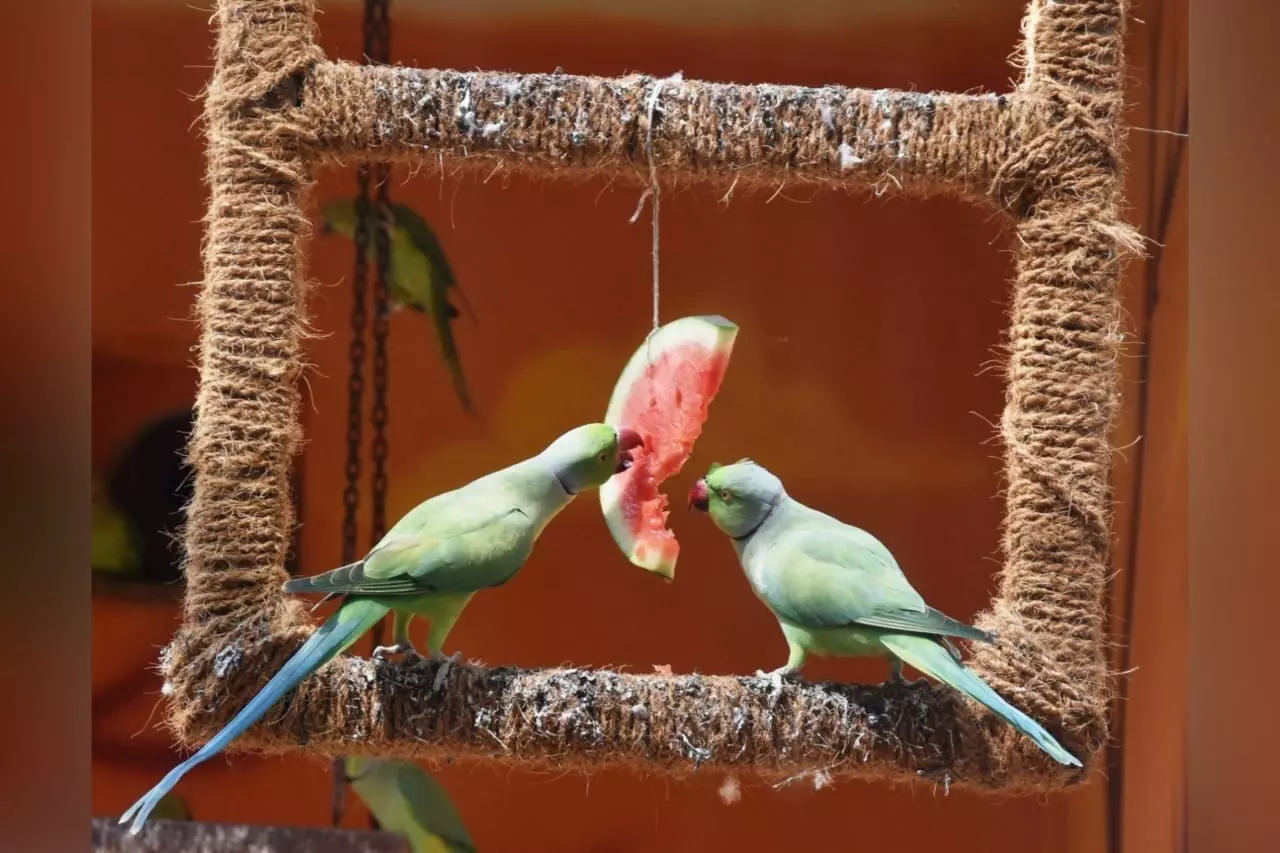Sprinklers & coolers: Hyderabad zoo prepares to keep animals cool this summer
The zoo is providing ample amounts of protected cold water to all animal houses to prevent dehydration.
By Nikisha Uddagiri
Hyderabad: As the city’s temperature continues to rise, both humans and animals are finding it increasingly difficult to cope with the heat. In response to this, the Nehru Zoological Park in Hyderabad has implemented a range of summer arrangements and precautionary measures to ensure the health, care, and protection of the park’s mammals, birds, reptiles, and other animals.
Since the first week of March 2023 and continuing until mid-June, the park has been continuously watering its lawns and gardens to maintain a green and cool environment. These efforts are aimed at preventing summer stress and stroke among animals.
Other measures include:
· Installing over 200 sprinklers and small rain guns in all enclosures, with a focus on herbivores.
· Placing more than 1,000 foggers in the reptile house, new macaws area, and all pheasantry and aviary areas.
· Providing over 1,000 kg of thunga grass with a breadth of at least 6 inches on the roofs of enclosure night houses.
· Erecting shade nets in the duck pond and stork pond areas.
· Installing more than 80 air coolers in enclosures housing monkeys, carnivores, and omnivores.
· Equipping the nocturnal animal house and cub rearing centre with air conditioners and exhaust fans.
· Providing temporary shady shelters for all herbivore enclosures.
· Offering seasonal fruits like watermelon, musk melon, and citrus fruits to apes, monkeys, primates, birds, and bears.
· Providing ample amounts of protected cold water to all animal houses to prevent dehydration.
· Adding supplements such as Glucon–D, Electral Powder, Vitamin–C and B-Complex supplements, Stresswell, and Thermo Care Liquid to the water to reduce summer stress (veterinary section).
· Providing kashkash thattis in all animal house enclosures to avoid direct sunlight exposure on the animals.
· Watering the kashkash thattis and thunga grass at least 3 to 4 times to prevent summer stress.
· Providing thunga grass on top of all animal houses, including aviaries and the macaws area, with a breadth of at least 4 inches.
· Ensuring animal keepers, head animal keepers, and park supervisors take preventive steps to avoid summer stress for wild animals, birds, and reptiles.
Prashant Bajirao Patil, the curator of Nehru Zoological Park, Hyderabad, inspected these summer arrangements and praised the animal keepers, malis, and workshop technicians for their efforts to overcome summer-related issues. The park is planning to conduct wildlife education and awareness programmes for school students after examinations and has invited wildlife and nature lovers to share their ideas for the welfare of animals, forests, and the zoo.